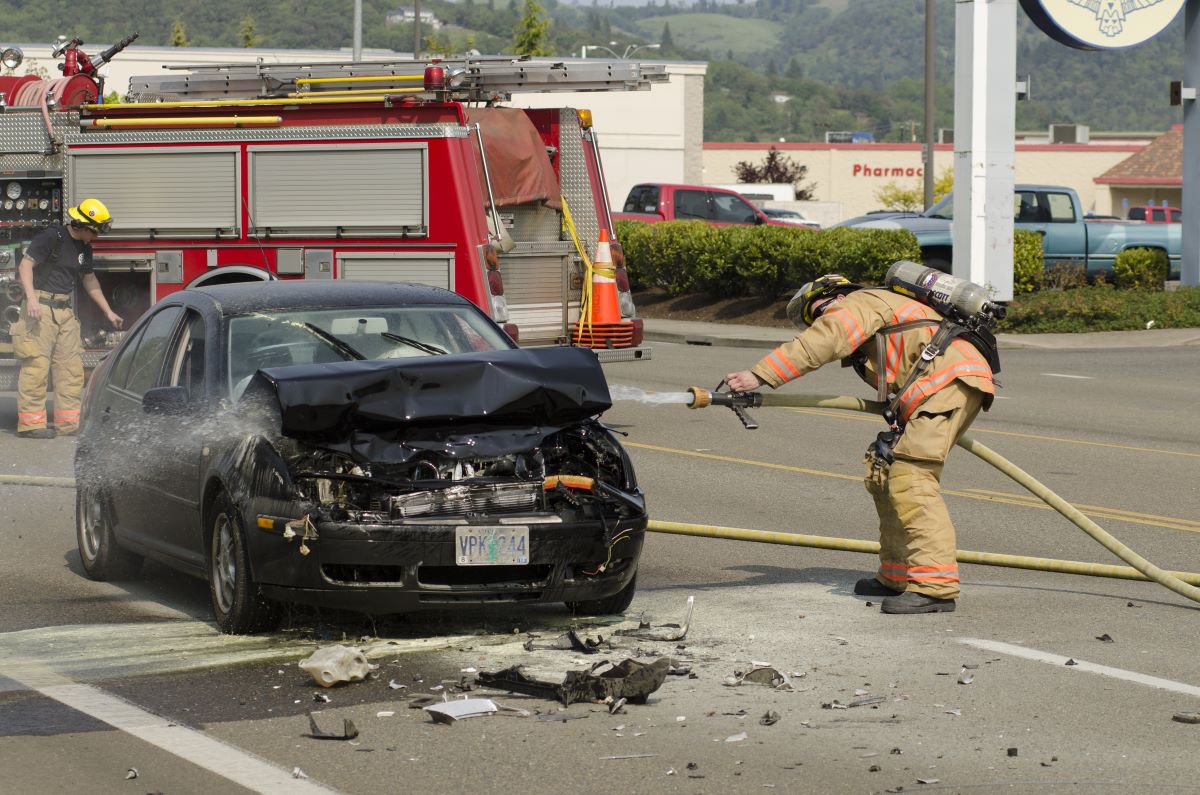
If you’ve ever driven past a burning car, you might think there’s nothing scarier. Even cars that have been extinguished look like something from an action film where a stunt has gone horribly wrong. Two questions become crystal clear:
- What causes a car fire?
- What would I do in the event of a car fire?
From highway fires that involve brush or grass to simple overheating and the danger that results, it’s important to be prepared and not just know what to do — but practice what you’ll do — in the event of an emergency.
Common Causes
Cars are complicated machines, and they keep getting more complicated. As technology integrates more with our transportation solutions, it is important to be aware of some common causes of car fires, especially these days. These include:
- Overheating
- Mechanical failure
- Electrical failure
- Battery malfunction
If your car’s engine overheats, the water is well above the boiling point. In some cases, it could be as hot as 250 degrees. So it’s best to pull over somewhere safe, shut down, and let the engine cool off before you try to look at what caused it.
Mechanical and electrical failures are also common causes of car fires. A mechanical failure could be anything from a dragging tailpipe to a leaky fuel line. All it takes is a single spark.
Electrical and battery failures can cause wires to become so hot that they weld themselves together or fuse to whatever they’re resting on. If a wire is hot enough to do that, you’re probably going to have a car fire.
Gas/Oil Leaks
Leaking oil is bad but usually doesn’t cause a car fire unless it’s raining off the engine. You’ll see tons of smoke before you see flames in that case.
But a fuel leak is a lot more serious. If you smell gas when you walk up to your car, make sure you don’t make it worse by starting it. Instead, call a professional to assess the situation and get it fixed as soon as possible.
Electric Car Crashes
Electric cars may seem cool to some people, but the fact is most fire departments are neither trained nor equipped to fight electric car fires.
EV car fires are much hotter than other car fires and do not respond to traditional means of suppression. On top of that, there’s the phenomenon of thermal runaway, which occurs when one battery cell ignites another in a sustained chain reaction and is very dangerous.
These are the things the proponents of electric cars don’t talk about, but they absolutely should. Ignoring the issue doesn’t make it go away. On the contrary, the more you know, the better decisions you can make about what you drive and why.
What Types of Vehicles Require a Fire Extinguisher?
This regulation is really simple and closely follows common sense. Here are some general rules concerning fire extinguishers:
- Commercial trucks: required
- Commercial buses: required
- All other vehicles: recommended
Your top priority in a car fire is to stop safely, get everyone out and away, and then, if it’s safe to do so, attempt to extinguish the fire.
If you carry a first aid kit, an emergency blanket, and a spare tire in your car, why wouldn’t you also carry a small ABC fire extinguisher? They’re not expensive, and they could be the one thing you need most.



